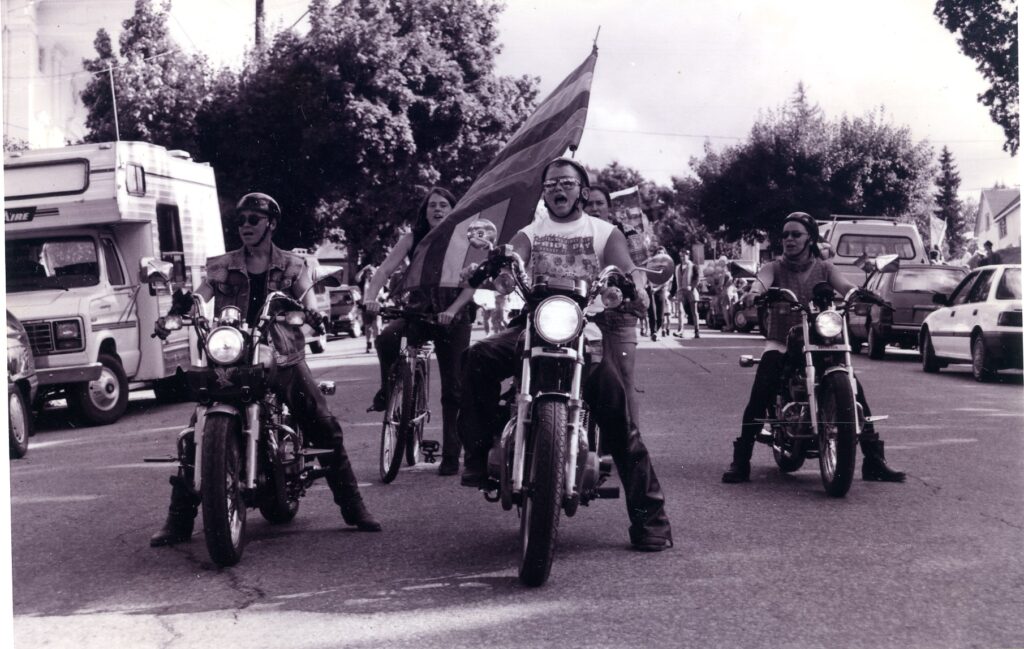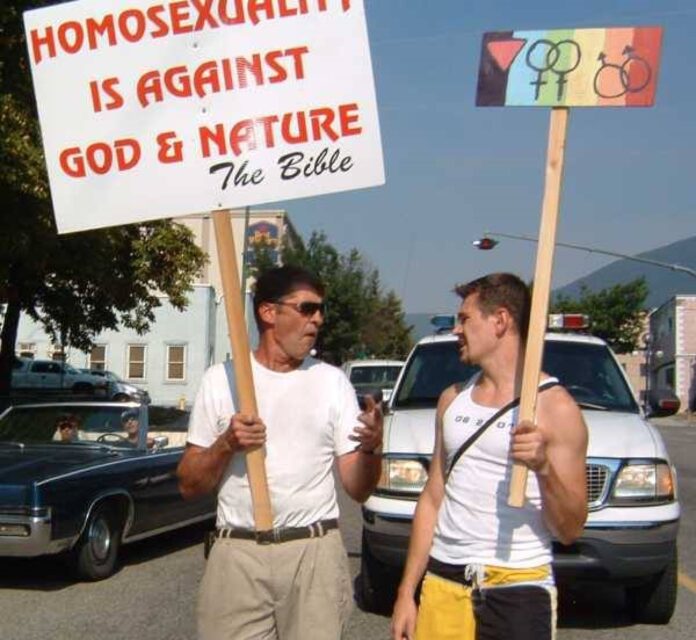A documentary film on the the history of LGBTQ2S+ people in the Kootenays will premiere at the Civic Theatre in Nelson on June 22.
Queering the Interior, by local filmmaker Amy Bohigian, tells that story from the perspectives of 13 people who lived it.
Bohigian explains the project began last year with Touchstones Nelson executive director Astrid Heyerdahl’s vision for creating more space in the museum for voices not typically heard. Bohigian contributed a 10-minute film to the museum’s Kootenay Pride exhibit.
“As we got into the research, which meant reaching out to dozens of people across the decades who lived here, we realized the story was way bigger than what we were going to do for the exhibit,” she says.
Consequently, that shorter piece has grown into a 45-minute documentary that features the personal stories of Michael Wicks, Christopher Moore, Cindy Henderson, Robert Verigin, Henri Roberts, Sophia Dricos, Norma Kilpatrick, Seán Hennessey, Uli Holtkamp, Jesse Halton, Bobbi Mollenberg, Smokii Sumac, Cheryl Dowden, and Jo Caple.
Two of those people identify as two-spirited, namely Mollenberg of the Sinixt, and Halton, an aboriginal educator in the Kootenay Lake school district.
Roberts and Verigin grew up in the Kootenays and, as hairdressers, became what Bohighian calls “the social backbone of the community. They got to know people in all different corners of society and really created space one person at a time for acceptance for gay people.”
The gay male community grew, she says, and “eventually lesbians started moving here in droves.”
Additionally, “we have such a robust trans population. And now we see so many people identifying as gender-fluid or non-binary. The Kootenays have come to be a place where people know they can move and be safe if they want to live rurally.”
The film goes back to the late 1960s and early ’70s when the gay community became more visible, providing records Bohigian could work with.
She credits Michael Wicks, who is working with Touchstones on their LGBTQ2S+ archives, for the foundational images and video clips she was able to use in piecing together the film, which she considers a first of its kind.
Most interviewees were happy to share their memories, she adds, given that they were already pushing boundaries in their own time.
“Activism is a life long journey for them, even though some would not necessarily consider themselves activists. They’re just being who they are, but they share their stories as a way of making space for themselves in the world.”
Bohigian says she hopes the film finds an audience with young people who may not be aware of how the Kootenays became queer friendly, or at least a safer space than many rural areas.
She adds that she wanted to strike a balance between celebratory and cautious tones, mixing “look at how far we’ve come” with “don’t rest on your laurels.”
Tickets are now available for the 7 p.m. screening, which will be followed by a Q&A session. Bohigian says she is looking at other ways of making the film available as well.
She previously made Only in Nelson and Dreamers and Dissidents for the Knowledge Network, both of which are also about the Kootenays.






